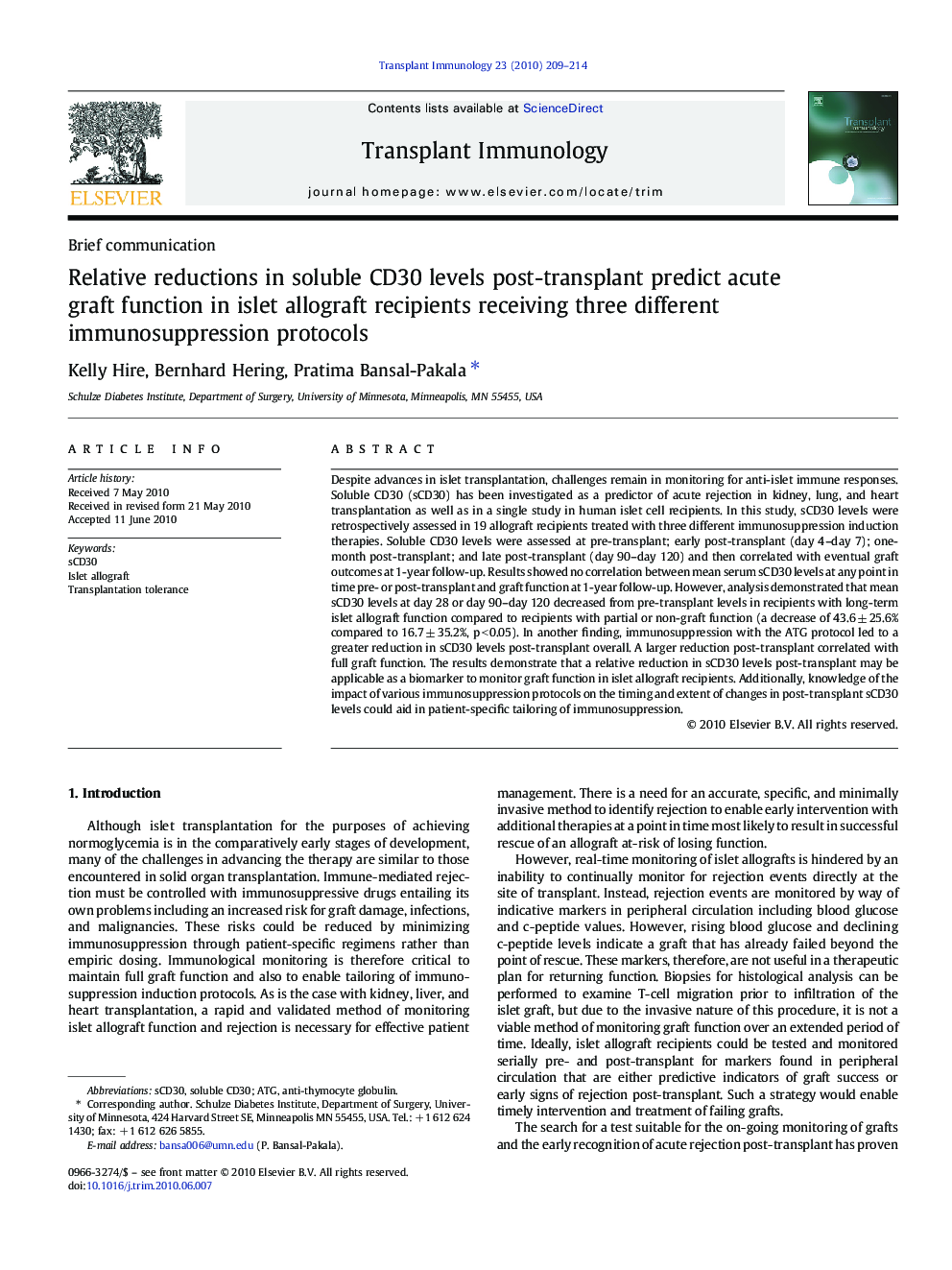| Article ID | Journal | Published Year | Pages | File Type |
|---|---|---|---|---|
| 3392348 | Transplant Immunology | 2010 | 6 Pages |
Despite advances in islet transplantation, challenges remain in monitoring for anti-islet immune responses. Soluble CD30 (sCD30) has been investigated as a predictor of acute rejection in kidney, lung, and heart transplantation as well as in a single study in human islet cell recipients. In this study, sCD30 levels were retrospectively assessed in 19 allograft recipients treated with three different immunosuppression induction therapies. Soluble CD30 levels were assessed at pre-transplant; early post-transplant (day 4–day 7); one-month post-transplant; and late post-transplant (day 90–day 120) and then correlated with eventual graft outcomes at 1-year follow-up. Results showed no correlation between mean serum sCD30 levels at any point in time pre- or post-transplant and graft function at 1-year follow-up. However, analysis demonstrated that mean sCD30 levels at day 28 or day 90–day 120 decreased from pre-transplant levels in recipients with long-term islet allograft function compared to recipients with partial or non-graft function (a decrease of 43.6 ± 25.6% compared to 16.7 ± 35.2%, p < 0.05). In another finding, immunosuppression with the ATG protocol led to a greater reduction in sCD30 levels post-transplant overall. A larger reduction post-transplant correlated with full graft function. The results demonstrate that a relative reduction in sCD30 levels post-transplant may be applicable as a biomarker to monitor graft function in islet allograft recipients. Additionally, knowledge of the impact of various immunosuppression protocols on the timing and extent of changes in post-transplant sCD30 levels could aid in patient-specific tailoring of immunosuppression.
